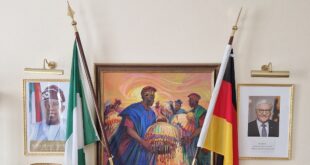EU-support for Swaziland’s monarchy-controlled sugar industry undermines the fight for democracy, even though it nominally benefits smallholders, says new report from Danish solidarity organization, reports Peter Kenworthy.
A new report from Afrika Kontakt commends the EU for supporting Swaziland’s sugar industry, which benefits thousands of smallholder growers of sugar cane. The problem is, however, that the smallholder growers are also left vulnerable by sugar price fluctuations and transport costs, as well as by the corruption and undermining of the fight for democracy, that EU-support for Swaziland’s sugar industry, healthcare and education systems allows.
The report is based on extensive research in Swaziland, including field studies and interviews with most actors in Swaziland’s sugar industry.
Support ends up in king’s pocket
Despite Swaziland being a small country with a population of just under 1.3 million; it is nevertheless Africa’s fourth largest sugar producer. The sugar industry employs 16 percent of the adult population in a country where unemployment is close to 30 percent, and is thus the country’s most important industry.

Swaziland is not a democracy by any definition of the word, even though elections are held every five years, the report insists, but in fact an absolute monarchy. The country spends more money on security than health, and six percent of its budget goes towards maintenance of the king’s household. It is also the most unequal country in the world, with the highest HIV-prevalence and the lowest life expectancy in the world.
“There are strong political powers that have little or no interest in changing the undemocratic nature of Swaziland. Support to the sugar industry, in the way that it is currently conducted, will therefore unavoidably and primarily ends up supporting the royal family and thus undermines the democratic forces in the country,” the report says.
Demand democratic reform
As one of Swaziland’s main trading partners, who spends millions of euros every year on development aid to Swaziland, the EU is actually in a position to demand democratic change in Swaziland, however, one of the authors of the report, Klaus Stig Kristensen from Afrika Kontakt says.
“Swaziland is a de facto dictatorship and it is difficult to ensure that international support doesn’t end up lining the pockets of King Mswati and his family. Tough measures are needed to avoid this, including demands for democratic reform and monitoring of these demands. And if these demands not met there should be consequences, such as suspending development aid to Swaziland,” says Kristensen.
His report recommends that the EU support the democratic movement fighting for change, including illegal political parties, unions and right-based groups.
The EU should also demand that Swaziland, as a country without external enemies, spends less on security and more on the welfare of its impoverished population, and condemn Swaziland’s lack of compliance with its international rights-based obligations.
Afrika Kontakt has run development projects with Swazi civil society organisations for a decade.
 THE AFRICAN COURIER. Reporting Africa and its Diaspora! The African Courier is an international magazine published in Germany to report on Africa and the Diaspora African experience. The first issue of the bimonthly magazine appeared on the newsstands on 15 February 1998. The African Courier is a communication forum for European-African political, economic and cultural exchanges, and a voice for Africa in Europe.
THE AFRICAN COURIER. Reporting Africa and its Diaspora! The African Courier is an international magazine published in Germany to report on Africa and the Diaspora African experience. The first issue of the bimonthly magazine appeared on the newsstands on 15 February 1998. The African Courier is a communication forum for European-African political, economic and cultural exchanges, and a voice for Africa in Europe.


























